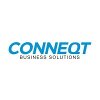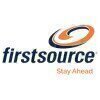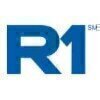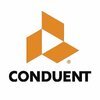
i
Infosys BPM
Filter interviews by
Infosys BPM Interview Questions and Answers
391 Interview questions
Exceptions to an NDA include legal obligations, prior knowledge, and public domain information.
Legal obligations: If required by law or court order, disclosure is permitted.
Prior knowledge: Information already known to the receiving party before signing the NDA.
Public domain: Information that is publicly available and not confidential.
Consent: If both parties agree to disclose certain information.
Independent devel...
Boilerplate clauses are standard provisions in contracts that are often reused without significant changes.
Commonly found in legal documents, such as contracts and agreements.
Examples include confidentiality clauses, indemnity clauses, and dispute resolution clauses.
They help streamline the drafting process and ensure consistency across documents.
Boilerplate clauses often address issues like governing law, force m...
Termination refers to the ending of employment or contracts, with various types based on circumstances and processes.
Voluntary Termination: When an employee chooses to leave, e.g., resignation.
Involuntary Termination: Employer-initiated, e.g., layoffs or firings.
Mutual Termination: Both parties agree to end the employment relationship.
Contract Termination: Ending a contract before its completion, e.g., breach of t...
Contract management involves the creation, execution, and analysis of contracts to maximize operational and financial performance.
Involves drafting, negotiating, and finalizing contracts with stakeholders.
Ensures compliance with legal and regulatory requirements, e.g., GDPR in data contracts.
Includes monitoring contract performance and managing renewals or terminations.
Utilizes contract management software for tra...
What people are saying about Infosys BPM





Aptitude tests assess candidates' abilities, helping employers identify suitable candidates for specific roles.
Evaluate cognitive abilities: Aptitude tests measure logical reasoning, problem-solving skills, and critical thinking.
Predict job performance: High scores often correlate with better job performance, aiding in hiring decisions.
Standardized assessment: Provides a uniform measure to compare candidates, redu...
Fundamental principles of accounting guide financial reporting and ensure consistency, transparency, and accuracy in financial statements.
1. Accrual Principle: Revenues and expenses are recorded when they are earned or incurred, not when cash is exchanged. Example: A sale made on credit is recorded when the sale occurs, not when payment is received.
2. Consistency Principle: Businesses should use the same accountin...
KYC (Know Your Customer) and CDD (Customer Due Diligence) are processes to verify customer identities and assess risks.
KYC involves collecting customer information like name, address, and identification.
CDD assesses the risk associated with a customer based on their profile.
For example, a bank may require KYC for opening a new account.
CDD might involve enhanced scrutiny for high-risk customers, such as politically...
The P2P process involves the complete cycle of purchasing goods and services, from requisition to payment.
Initiation: A department identifies a need for goods/services and creates a purchase requisition.
Approval: The requisition is reviewed and approved by the necessary authorities.
Purchase Order: A purchase order is generated and sent to the supplier.
Receipt of Goods/Services: The organization receives the ordere...
PR SAP Tcodes for Contract Function manage procurement contracts in SAP systems, facilitating efficient purchasing processes.
Tcodes like ME31K (Create Contract) and ME32K (Change Contract) are essential for managing procurement contracts.
ME33K (Display Contract) allows users to view contract details and terms.
Contracts can be categorized as either 'Quantity Contracts' or 'Value Contracts' based on procurement need...
Desktop support involves assisting users with hardware and software issues on their computers to ensure smooth operation.
Troubleshooting hardware issues, such as replacing a faulty hard drive.
Resolving software problems, like fixing application crashes or installation errors.
Providing user training on software applications, such as Microsoft Office.
Setting up new computers and configuring them for user needs.
Manag...
Infosys BPM Interview Experiences
1k interviews found
I appeared for an interview in Dec 2024.
(2 Questions)
- Q1. What is your notice period, and what is your current salary?
- Ans.
My notice period is 1 month, and my current salary is $60,000 per year.
Notice period is 1 month
Current salary is $60,000 per year
- Q2. What is your notice period?
- Ans.
My notice period is one month.
Notice period is one month
Standard notice period in the industry
Can be negotiable based on circumstances
(6 Questions)
- Q1. What is an amortization entry?
- Ans.
An amortization entry is a financial transaction that spreads the cost of an intangible asset over its useful life.
Amortization entries are used to gradually reduce the value of intangible assets on the balance sheet.
They are typically recorded as a debit to amortization expense and a credit to the intangible asset account.
Examples of intangible assets that may require amortization entries include patents, trademarks, ...
- Q2. What is the process for recording a depreciation entry in accounting?
- Ans.
Depreciation entry in accounting involves allocating the cost of an asset over its useful life.
Calculate the depreciation expense using a chosen method (straight-line, double-declining balance, units of production, etc.)
Debit the depreciation expense account and credit the accumulated depreciation account
Adjust the book value of the asset on the balance sheet
Repeat the process each accounting period until the asset is ...
- Q3. What are the types of reconstruction currently being undertaken?
- Ans.
Types of reconstruction currently being undertaken include urban, environmental, and infrastructure reconstruction.
Urban reconstruction - rebuilding of cities and towns after natural disasters or conflicts
Environmental reconstruction - restoration of ecosystems and habitats
Infrastructure reconstruction - repairing or upgrading of roads, bridges, and utilities
Examples: rebuilding of New Orleans after Hurricane Katrina, ...
- Q4. What is your reason for seeking a job change?
- Ans.
Seeking new challenges and growth opportunities in a dynamic work environment.
Looking for new challenges and opportunities for growth
Seeking a more dynamic work environment
Interested in taking on more responsibilities as an Assistant Manager
- Q5. What automation ideas have you implemented or suggested in your current processes?
- Ans.
Implemented automation ideas include introducing automated email notifications for order status updates and setting up automated data backups.
Introduced automated email notifications for order status updates to improve communication with customers
Set up automated data backups to ensure data security and prevent loss
Suggested implementing automated inventory management system to streamline operations and reduce manual e...
- Q6. What is the accounting entry for prepaid expenses?
- Ans.
Prepaid expenses are assets paid for in advance but not yet used, so the accounting entry involves debiting an asset account and crediting a liability account.
Debit the Prepaid Expense account (asset account) to increase its balance
Credit the Cash/Bank account or Accounts Payable account to decrease the balance
As the prepaid expense is used up, it is recognized as an expense on the income statement
Examples: Prepaid ren...
(8 Questions)
- Q1. What is the amortization entry?
- Ans.
Amortization entry is a financial accounting process of spreading the cost of an intangible asset over its useful life.
Amortization entry is used to allocate the cost of intangible assets such as patents, copyrights, and trademarks over their useful life.
It helps in matching the expense of the asset with the revenue it generates.
The entry typically involves debiting amortization expense and crediting accumulated amorti...
- Q2. What is your understanding of Lean?
- Ans.
Lean is a methodology focused on maximizing customer value while minimizing waste.
Lean is about continuously improving processes to eliminate waste and increase efficiency.
It involves identifying value from the customer's perspective and streamlining operations to deliver that value.
Lean principles include Kaizen (continuous improvement), Just-in-Time production, and Jidoka (automation with a human touch).
Examples of L...
- Q3. What is your understanding of Six Sigma
- Ans.
Six Sigma is a data-driven methodology used to improve processes by reducing defects and variations.
Six Sigma aims to achieve near perfection in processes by identifying and eliminating causes of defects or errors.
It uses statistical tools and techniques to measure and analyze process performance.
The goal of Six Sigma is to reduce variation and improve efficiency, ultimately leading to cost savings and customer satisfa...
- Q4. What are the techniques used in Six Sigma?
- Ans.
Six Sigma techniques include DMAIC, Lean Six Sigma, Root Cause Analysis, and Statistical Process Control.
DMAIC (Define, Measure, Analyze, Improve, Control) is a structured problem-solving methodology used to improve processes.
Lean Six Sigma combines Six Sigma methods with Lean manufacturing principles to reduce waste and improve efficiency.
Root Cause Analysis is a technique used to identify the underlying cause of a pr...
- Q5. What is a service level?
- Ans.
A service level is a metric used to measure the performance of a service provider in meeting customer expectations.
Service level agreements (SLAs) define the expected level of service to be provided
Service levels are often expressed as a percentage of time that a service is available or delivered within a certain timeframe
Monitoring and reporting on service levels helps identify areas for improvement
Example: A service ...
- Q6. What are Service Level Agreements (SLAs)?
- Ans.
SLAs are agreements between a service provider and a customer that outline the level of service expected.
SLAs define the scope, quality, and responsibilities of the service provider.
They include metrics such as response time, resolution time, and uptime guarantees.
Penalties may be specified for failing to meet SLA requirements.
Examples include a web hosting company guaranteeing 99.9% uptime or a call center promising t...
- Q7. What automation ideas have you proposed for the current processes?
- Ans.
I have proposed implementing robotic process automation (RPA) for repetitive tasks, using workflow automation tools, and integrating AI for data analysis.
Proposed implementing robotic process automation (RPA) for repetitive tasks to increase efficiency
Suggested using workflow automation tools to streamline processes and reduce manual errors
Recommended integrating AI for data analysis to improve decision-making and fore...
- Q8. What is the case study regarding the entry for accrued expenses?
- Ans.
Accrued expenses refer to expenses that have been incurred but not yet paid.
Accrued expenses are recorded as liabilities on the balance sheet.
They are typically recognized at the end of an accounting period.
Examples include accrued salaries, interest, and utilities.
Accrued expenses are important for accurate financial reporting.
Interview Preparation Tips
I appeared for an interview in Jan 2025.
(2 Questions)
- Q1. Tell me about yourself
- Q2. Techincal questions
General knowlege and communication
(2 Questions)
- Q1. Walk me through your resume
- Ans.
I have 5 years of experience in technical support, with expertise in troubleshooting hardware and software issues.
Started as a technical support intern at XYZ Company
Promoted to Technical Support Specialist after 2 years
Handled troubleshooting for hardware and software issues for clients
Provided remote support via phone and email
Trained new team members on technical support processes
- Q2. Why to choose this job
- Ans.
I am passionate about helping others solve technical issues and enjoy the challenge of troubleshooting complex problems.
I have a strong technical background and enjoy working with technology
I thrive in fast-paced environments and enjoy problem-solving
I have excellent communication skills and enjoy helping others
I find satisfaction in resolving issues and making a positive impact on customers
(2 Questions)
- Q1. Tell me about yourself
- Q2. Technical question
Interview Preparation Tips
I appeared for an interview in Jan 2025.
(2 Questions)
- Q1. Can you provide a self-introduction?
- Ans.
Experienced Technology Support Specialist with a passion for troubleshooting and problem-solving.
Over 5 years of experience providing technical support to end-users
Proficient in troubleshooting hardware and software issues
Skilled in setting up and configuring network systems
Strong communication and customer service skills
Certified in IT support and network administration
- Q2. About experience
(3 Questions)
- Q1. What is the explanation of the OSI layers?
- Ans.
The OSI (Open Systems Interconnection) model is a conceptual framework that standardizes the functions of a telecommunication or computing system into seven distinct layers.
The OSI model helps in understanding how data is transmitted over a network.
Each layer has specific functions and interacts with adjacent layers.
Examples of OSI layers include Physical, Data Link, Network, Transport, Session, Presentation, and Appli...
- Q2. What were the challenges you faced in your previous work?
- Ans.
I faced challenges with outdated technology, lack of training, and communication issues.
Outdated technology hindered productivity and caused frequent system crashes.
Lack of training made it difficult to troubleshoot complex issues effectively.
Communication issues led to misunderstandings and delays in resolving technical issues.
- Q3. Outlook configuration
Interview Preparation Tips
I appeared for an interview in Jan 2025.
Social media ,Interests,Behaviour
(3 Questions)
- Q1. What Factors Would infrom ur approach to targeting the right people on social media in order to divice sales
- Ans.
Targeting the right people on social media for sales involves analyzing demographics, interests, behavior, and engagement.
Utilize social media analytics tools to identify target audience demographics and interests
Create targeted ads based on audience behavior and engagement with previous posts
Engage with followers through interactive content to build relationships and increase sales potential
- Q2. What iş different between confidence and overconfidence
- Ans.
Confidence is a belief in oneself based on experience and ability, while overconfidence is an excessive belief in oneself that may lead to arrogance and mistakes.
Confidence is based on realistic self-assessment, while overconfidence is often based on an inflated sense of self-worth.
Confidence allows for a healthy level of risk-taking and growth, while overconfidence can lead to reckless behavior and poor decision-makin...
- Q3. What is the mortgage loans?
- Ans.
Mortgage loans are loans taken out to purchase real estate, with the property serving as collateral for the loan.
Mortgage loans are used to finance the purchase of a home or property.
The borrower makes monthly payments to the lender, which include principal and interest.
If the borrower fails to make payments, the lender can foreclose on the property.
Interest rates on mortgage loans can be fixed or adjustable.
Common typ...
Interview Preparation Tips
I appeared for an interview in Jan 2025.
(2 Questions)
- Q1. About Excel Macros
- Q2. Project management skill
(2 Questions)
- Q1. Excel Macros and reporting
- Q2. How you can manage difficult situation
- Ans.
I manage difficult situations by staying calm, assessing the problem, communicating effectively, and finding a solution.
Stay calm and composed to think clearly
Assess the situation to understand the root cause
Communicate effectively with all parties involved
Collaborate with team members to find a solution
Implement the solution and follow up to ensure resolution
Interview Preparation Tips
I applied via Walk-in and was interviewed in Jul 2024. There were 3 interview rounds.
There is an online aptitude test that covers English grammar & passage reading skills, quant, and logical reasoning, communications skills, email writing skills, etc. The test is quite easy we need to be focused and answer the questions quickly.
(5 Questions)
- Q1. Tell me about yourself.
- Ans.
I am a dedicated and experienced Senior Process Associate with a strong background in process improvement and team management.
Over 5 years of experience in process improvement and optimization
Skilled in team management and leadership
Proficient in data analysis and reporting
Strong communication and interpersonal skills
Certified in Lean Six Sigma
- Q2. Tell me about your previous job profile.
- Ans.
I was responsible for managing end-to-end process operations and ensuring efficiency in workflow.
Managed team of associates to meet daily production targets
Analyzed process data to identify areas for improvement
Implemented new strategies to streamline operations and reduce errors
- Q3. Why did you leave your previous organization?
- Ans.
Seeking new challenges and opportunities for growth.
Looking for career advancement
Desire for new challenges
Seeking better work-life balance
- Q4. What is your current CTC?
- Ans.
My current CTC is INR 6,00,000 per annum.
My current CTC is INR 6,00,000 per annum.
I am currently earning INR 50,000 per month.
My total compensation package is INR 6 lakhs per year.
- Q5. What is your expected salary?
- Ans.
My expected salary is negotiable and based on the responsibilities and opportunities offered by the position.
My expected salary is flexible and open to discussion.
I am looking for a competitive salary that reflects my skills and experience.
I am open to considering benefits and opportunities for growth in addition to salary.
(7 Questions)
- Q1. Go through your profile including your work profile.
- Q2. What do you know about insurance and tell us the different types of it?
- Ans.
Insurance is a form of risk management that provides financial protection against unforeseen events. There are various types of insurance available.
Types of insurance include life insurance, health insurance, auto insurance, home insurance, and travel insurance.
Life insurance provides a payout to beneficiaries upon the insured's death.
Health insurance covers medical expenses and treatments.
Auto insurance protects again...
- Q3. When & why did you leave your previous organization?
- Ans.
I left my previous organization in order to pursue new opportunities for growth and development.
Opportunity for career advancement
Seeking new challenges
Change in industry focus
Relocation to a different city
Better work-life balance
- Q4. Why should we hire you?
- Ans.
I have the relevant experience, skills, and dedication to excel in this role.
I have X years of experience in process management and have consistently met or exceeded targets.
I am proficient in using various tools and software to streamline processes and improve efficiency.
I am a quick learner and adapt well to new environments, ensuring a smooth transition into the role.
I am highly organized, detail-oriented, and have ...
- Q5. Are comfortable with permanent night shift?
- Ans.
Yes, I am comfortable with permanent night shifts.
I have previous experience working night shifts and have adjusted well to the schedule.
I understand the importance of maintaining a healthy work-life balance, even when working night shifts.
I am willing to adapt my lifestyle and routines to accommodate working during the night.
I am aware of the potential challenges of working night shifts, such as sleep disruption, and ...
- Q6. What is your current salary & what is your expected salary?
- Ans.
I am currently earning $50,000 annually and my expected salary is $60,000.
Current salary: $50,000 annually
Expected salary: $60,000 annually
- Q7. Do you have any questions for us? if not then HR will share your feedback from us.
Interview Preparation Tips
I applied via Job Portal
Testing and behavioral questions
(1 Question)
- Q1. Automation technical questions
(1 Question)
- Q1. Manager round, project and previous organization experience
I appeared for an interview in Jun 2025, where I was asked the following questions.
- Q1. Talk about anything for 5 minutes
- Ans.
Discussing the importance of effective communication in the workplace and its impact on team dynamics and productivity.
Effective communication fosters collaboration among team members.
Clear communication reduces misunderstandings and errors in tasks.
Regular feedback sessions can enhance team performance.
Using tools like Slack or Microsoft Teams can streamline communication.
Active listening is crucial for understanding ...
- Q2. Common questions related to academic projects in an MBA program, such as explaining financial statements and their differences?
Interview Preparation Tips
I applied via Walk-in and was interviewed in Dec 2024. There was 1 interview round.
(2 Questions)
- Q1. Print only nums in string
- Ans.
Use regex to extract numbers from a string
Use regex pattern '\d+' to match one or more digits in a string
Iterate through each string in the array and use regex to extract numbers
Store the extracted numbers in a separate array
- Q2. Diff btwn Abstraction and Interface
- Ans.
Abstraction is hiding the implementation details while Interface is a contract that defines the methods that a class must implement.
Abstraction focuses on what an object does, while Interface focuses on what an object is.
Abstraction can be achieved through abstract classes in Java, while Interface is implemented using the 'implements' keyword.
Abstraction allows for code reusability and flexibility, while Interface enfo...
I applied via Naukri.com and was interviewed in Jun 2024. There were 3 interview rounds.
(2 Questions)
- Q1. Tell me about yourself
- Ans.
I am a dedicated and experienced professional with a strong background in consulting and project management.
Over 5 years of experience in consulting and project management
Strong analytical and problem-solving skills
Excellent communication and interpersonal skills
Proven track record of delivering successful projects on time and within budget
- Q2. Skills that make you best fit for this role
- Ans.
My strong analytical skills, attention to detail, and ability to work well in a team make me the best fit for this role.
Strong analytical skills - able to analyze data and make informed decisions
Attention to detail - ensures accuracy and quality in work
Team player - collaborates effectively with colleagues to achieve goals
(8 Questions)
- Q1. What is Value Stream Mapping?
- Ans.
Value Stream Mapping is a lean management tool used to visualize and analyze the steps involved in delivering a product or service.
It helps identify waste and inefficiencies in the process.
It provides a clear picture of the current state and helps in designing a future state for improved flow.
Commonly used symbols include process steps, inventory, delays, and information flow.
Example: Mapping the steps involved in manu...
- Q2. What is CHI-Square Distribution?
- Ans.
CHI-Square Distribution is a probability distribution used in statistical tests to determine the significance of relationships between categorical variables.
Used in hypothesis testing to determine if there is a significant association between two categorical variables
Calculates the difference between observed and expected frequencies
Commonly used in goodness-of-fit tests and tests of independence
Example: Testing if the...
- Q3. Explain in detail the project you worked on in your Green Belt Certification
- Ans.
Implemented process improvements in a manufacturing plant to reduce defects and increase efficiency
Identified key areas of inefficiency in the production process
Utilized statistical analysis to pinpoint root causes of defects
Implemented changes such as standardizing work instructions and training operators
Monitored progress through data collection and analysis
Achieved a 20% reduction in defects and a 15% increase in ov...
- Q4. How would you approach a problem?
- Ans.
I approach problems by breaking them down into smaller components, analyzing each part thoroughly, and then developing a strategic plan to address the issue.
Identify the root cause of the problem
Gather relevant data and information
Brainstorm potential solutions
Evaluate the pros and cons of each solution
Develop a strategic plan to address the problem
Implement the plan and monitor progress
Adjust the plan as needed based ...
- Q5. How do you identify potential risks in a process?
- Ans.
Identifying potential risks in a process involves thorough analysis and evaluation of each step to anticipate possible issues.
Conducting a comprehensive risk assessment to identify potential hazards
Analyzing past data and trends to predict future risks
Engaging stakeholders to gather insights on potential risks
Utilizing risk management tools and techniques such as SWOT analysis
Creating contingency plans to mitigate iden...
- Q6. What is FMEA?
- Ans.
FMEA stands for Failure Mode and Effects Analysis, a systematic method for identifying and preventing potential failures in a process or product.
FMEA involves identifying potential failure modes, determining their effects, and prioritizing actions to address them
It helps in proactively identifying and mitigating risks before they occur
FMEA is commonly used in industries such as automotive, aerospace, and healthcare to ...
- Q7. How do you know if the process is stable and in control?
- Ans.
Process stability and control can be determined by analyzing variation in data points over time.
Use statistical process control charts like control charts, run charts, or histograms to monitor variation.
Look for patterns such as trends, cycles, or shifts in the data that may indicate instability.
Calculate process capability indices like Cp, Cpk, Pp, or Ppk to assess how well the process meets specifications.
Perform hyp...
- Q8. What are various tests for normal distribution?
- Ans.
Tests for normal distribution include Shapiro-Wilk test, Kolmogorov-Smirnov test, and Anderson-Darling test.
Shapiro-Wilk test: Tests if a sample comes from a normally distributed population.
Kolmogorov-Smirnov test: Tests if a sample comes from a specific distribution (e.g., normal).
Anderson-Darling test: Tests if a sample comes from a particular distribution (e.g., normal).
(8 Questions)
- Q1. What were the top challenges you faced in your previous organization and how did you tackle it?
- Ans.
One of the top challenges I faced in my previous organization was managing a high volume of client requests within tight deadlines.
Prioritized tasks based on urgency and importance
Implemented efficient communication channels to streamline client requests
Collaborated with team members to delegate tasks effectively
Utilized project management tools to track progress and ensure timely delivery
- Q2. Explain in detail your previous process and your role
- Ans.
Managed client relationships, conducted market research, and developed strategic recommendations for business growth.
Led client meetings to discuss project objectives and deliverables
Analyzed market trends and competitor data to identify growth opportunities
Collaborated with cross-functional teams to develop and implement strategic plans
Prepared and presented client-facing reports and presentations
Managed project timel...
- Q3. How did you manage conflicts?
- Ans.
I managed conflicts by actively listening, understanding all perspectives, finding common ground, and proposing solutions.
Actively listened to all parties involved to understand their perspectives
Identified common ground and areas of agreement
Proposed solutions that addressed the concerns of all parties
Used effective communication and negotiation skills to resolve conflicts peacefully
- Q4. What process improvement initiatives you ran in your previous organization and what benefits did it bring?
- Ans.
Implemented Lean Six Sigma initiatives to streamline processes and reduce waste.
Led a project to map out current processes, identify bottlenecks, and implement solutions to improve efficiency.
Introduced standardized work instructions to ensure consistency and reduce errors.
Trained team members on Lean Six Sigma principles to foster a culture of continuous improvement.
Implemented visual management tools to track progres...
- Q5. What is TQM?
- Ans.
TQM stands for Total Quality Management, a management approach focused on continuous improvement of processes and products.
TQM involves all employees in the organization working together to improve quality
It emphasizes customer satisfaction and meeting their needs and expectations
TQM uses tools like Six Sigma, Lean, and PDCA cycle to achieve quality goals
Examples of companies known for implementing TQM include Toyota a...
- Q6. Why are you looking for a change?
- Ans.
Seeking new challenges and opportunities for growth in a different environment.
Looking for new challenges to expand my skill set
Seeking opportunities for career advancement
Interested in exploring different industries or sectors
- Q7. How do you approach a process which has been underperforming since quite a time?
- Ans.
I would conduct a thorough analysis to identify root causes and implement targeted solutions.
Conduct a comprehensive analysis to identify the root causes of underperformance
Collaborate with team members to gather insights and perspectives
Develop a strategic plan to address the identified issues
Implement targeted solutions and monitor progress closely
Regularly review and adjust strategies as needed to ensure improvement
...
- Q8. What were the reports you used to publish and which tools you used?
- Ans.
I used to publish financial reports using Excel and PowerPoint.
Used Excel to analyze financial data and create tables and charts
Utilized PowerPoint to present findings and recommendations
Collaborated with team members to gather data and ensure accuracy
Interview Preparation Tips
Infosys BPM Interview FAQs
Some of the top questions asked at the Infosys BPM interview -
The duration of Infosys BPM interview process can vary, but typically it takes about less than 2 weeks to complete.
Tell us how to improve this page.
Infosys BPM Interviews By Designations
- Infosys BPM Processing Executive Interview Questions
- Infosys BPM Senior Processing Executive Interview Questions
- Infosys BPM Process Specialist Interview Questions
- Infosys BPM Accountant Interview Questions
- Infosys BPM Account Assistant Interview Questions
- Infosys BPM Business Analyst Interview Questions
- Infosys BPM System Engineer Interview Questions
- Infosys BPM Team Lead Interview Questions
- Show more
Interview Questions for Popular Designations
- Processing Executive Interview Questions
- Senior Processing Executive Interview Questions
- Process Specialist Interview Questions
- Accountant Interview Questions
- Account Assistant Interview Questions
- Business Analyst Interview Questions
- System Engineer Interview Questions
- Team Lead Interview Questions
- Show more
Overall Interview Experience Rating
based on 820 interview experiences
Difficulty level
Duration
Interview Questions from Similar Companies
Infosys BPM Reviews and Ratings
based on 10.7k reviews
Rating in categories
Bangalore / Bengaluru
1-6 Yrs
₹ 2-11 LPA
Bangalore / Bengaluru
1-5 Yrs
₹ 0.2-22.6 LPA
|
Senior Processing Executive
13k
salaries
| ₹2 L/yr - ₹5.6 L/yr |
|
Process Specialist
9k
salaries
| ₹2.9 L/yr - ₹8 L/yr |
|
Processing Executive
5.7k
salaries
| ₹1.5 L/yr - ₹4 L/yr |
|
Account Assistant
4.2k
salaries
| ₹2.1 L/yr - ₹5 L/yr |
|
Accountant
3.2k
salaries
| ₹2.5 L/yr - ₹6.6 L/yr |

Accenture

Teleperformance

Concentrix Corporation

iEnergizer
- Home >
- Interviews >
- Infosys BPM Interview Questions














